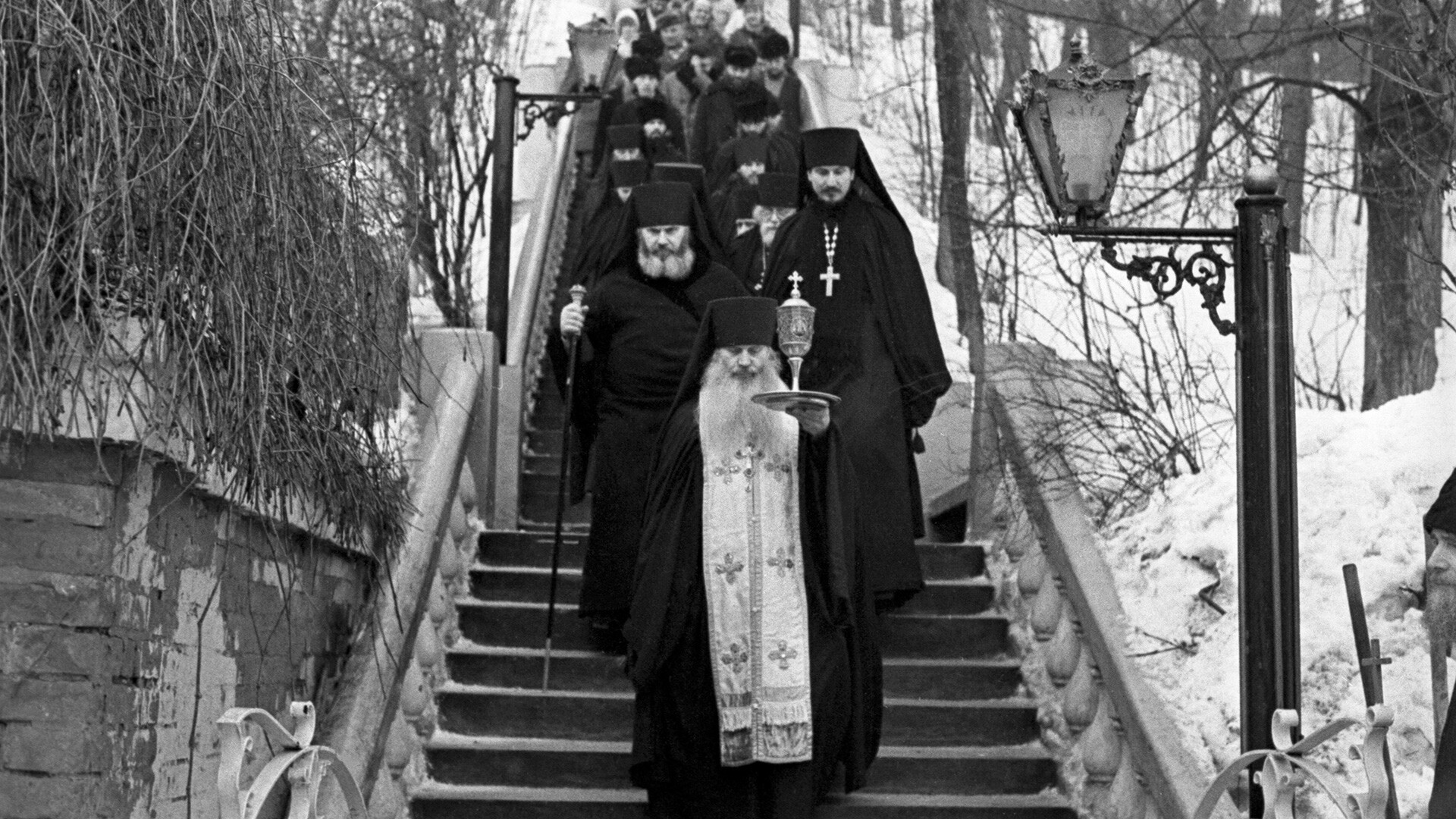How Russian Orthodox monks tricked the Soviet authorities

All citizens of the Soviet Union had to take part in elections, including monks. In the late 1960s, the voting box was usually brought to the refectory of the Pskov Caves Monastery. And, after dinner, the brothers voted under the supervision of the vicar.
However, once the First Secretary of the Pskov Regional Committee of the Communist Party learned that some “savage” monks were allowed to vote for the great party in their outdated monastery and not at the polling station, the official was outraged. He reprimanded everyone and ordered that, from now on, the monks themselves should go to the polls as all Soviet citizens do. And vote at the polling stations at their places of residence!
It is said that Father Nathanael of the Pskov Caves Monastery gave Abbot Alipius some subtle advice on how to deal with this situation.
Soon, another election took place. It was Sunday and, after the festal Liturgy was served in the monastery, a procession of the cross with priests bearing crosses and icons came out of the monastery gates and headed directly to the nearest polling station. Here is how Metropolitan Tikhon colorfully described it:
“Paired into two columns, in a long line singing hymns and in full ceremonial dress, the troops of monks paraded through the entire town towards the polling place. Their ancient banners fluttered in the wind as they marched, carrying their traditional crosses and ancient icons. But this was not all. As is the required custom before any important action, right in the middle of the polling place, the entire clergy began to pray out loud. The bureaucrats were frightened to death and tried to protest against this, but Father Alipius firmly interrupted them, lecturing that they were interfering with citizens’ rights to express themselves and carry out their constitutional duties as they were required to do! Having ‘voted’, the monks marched back with similar ostentatious ceremony to their holy monastery.”
“Needless to say, when the next elections came around, the ballot box was once again waiting for the monks on the table in the monastery refectory,” Metropolitan Tikhon wrote.


